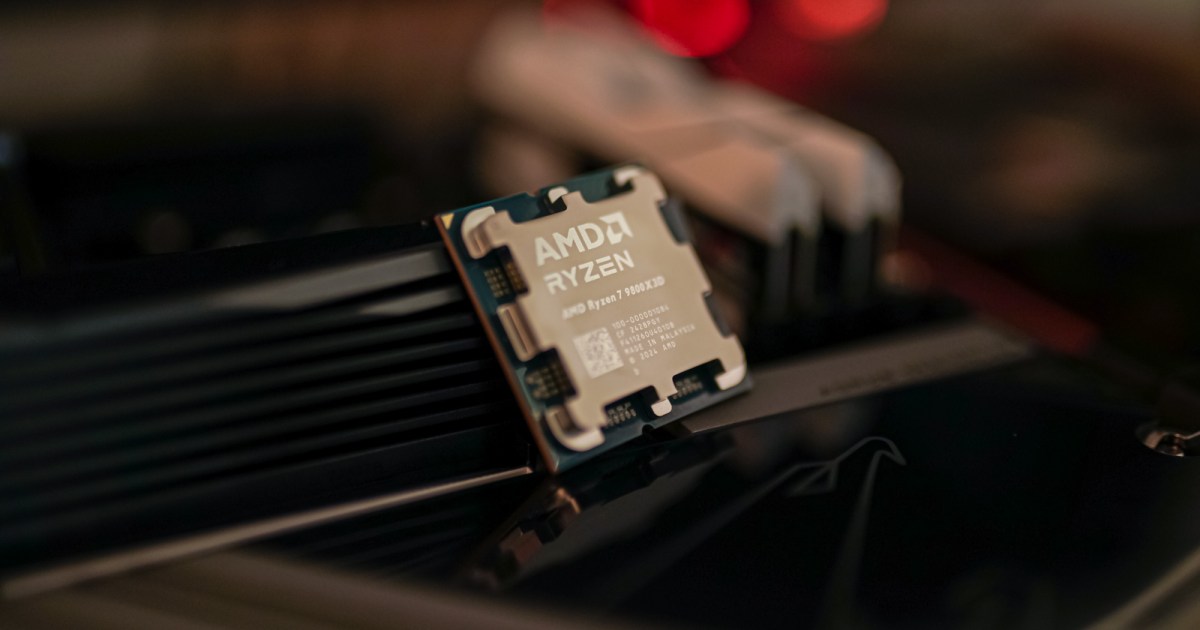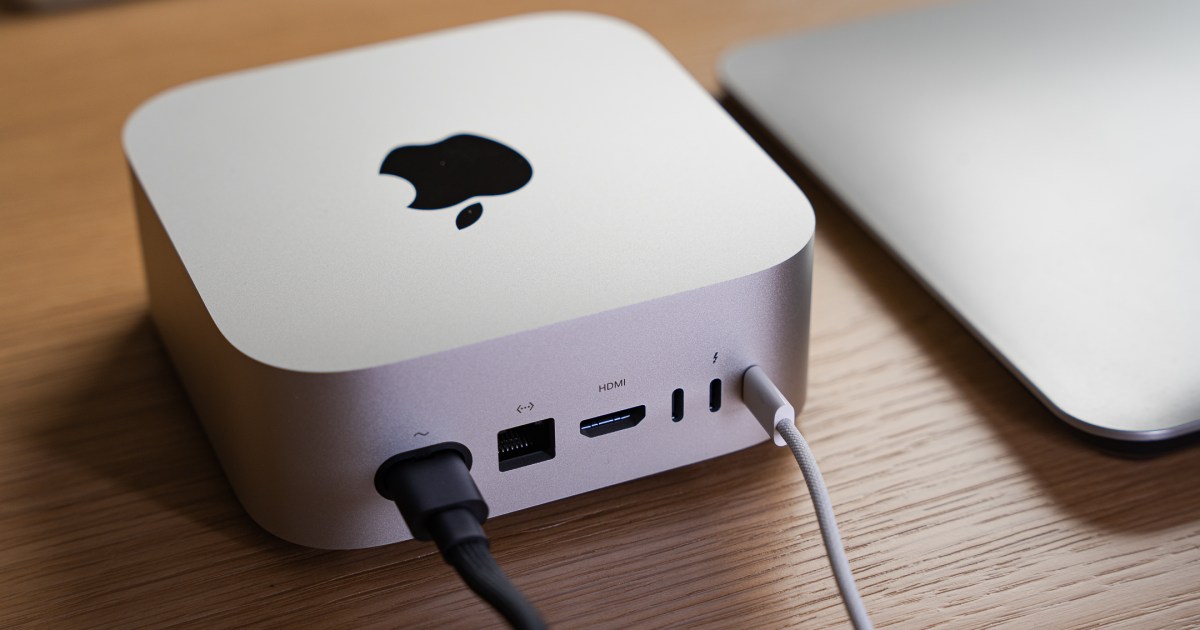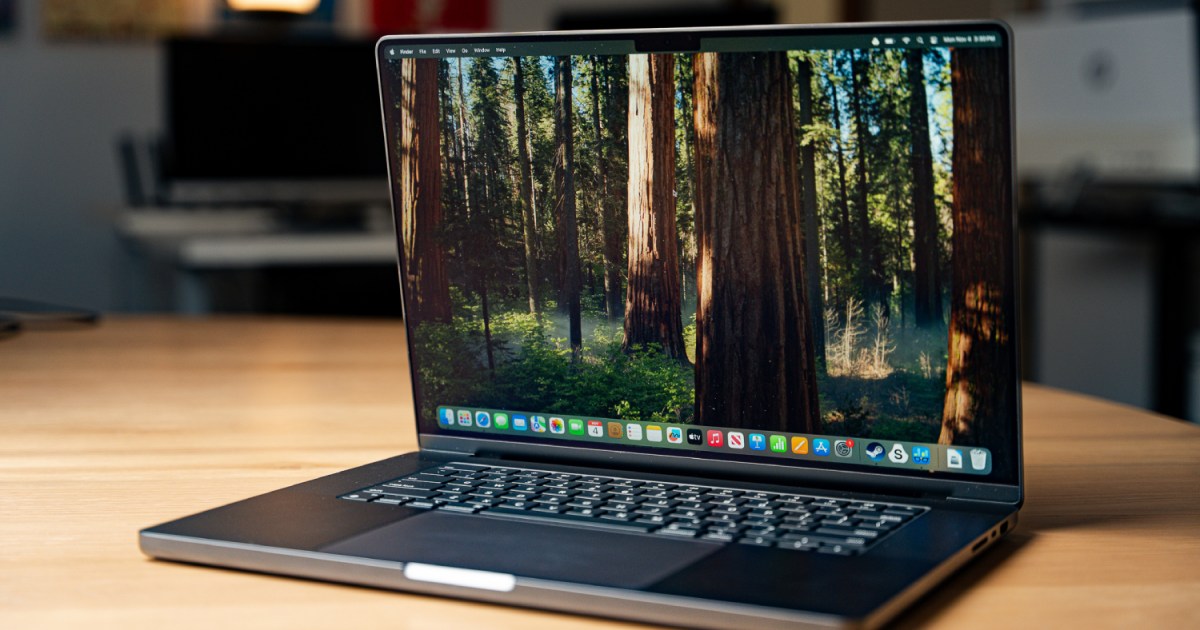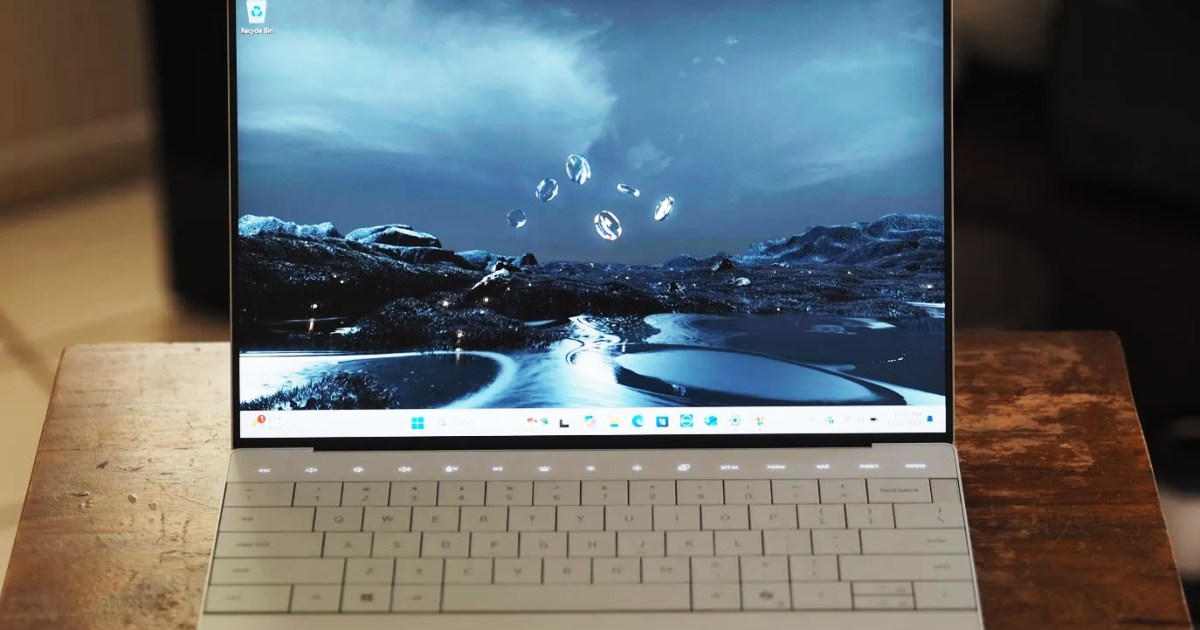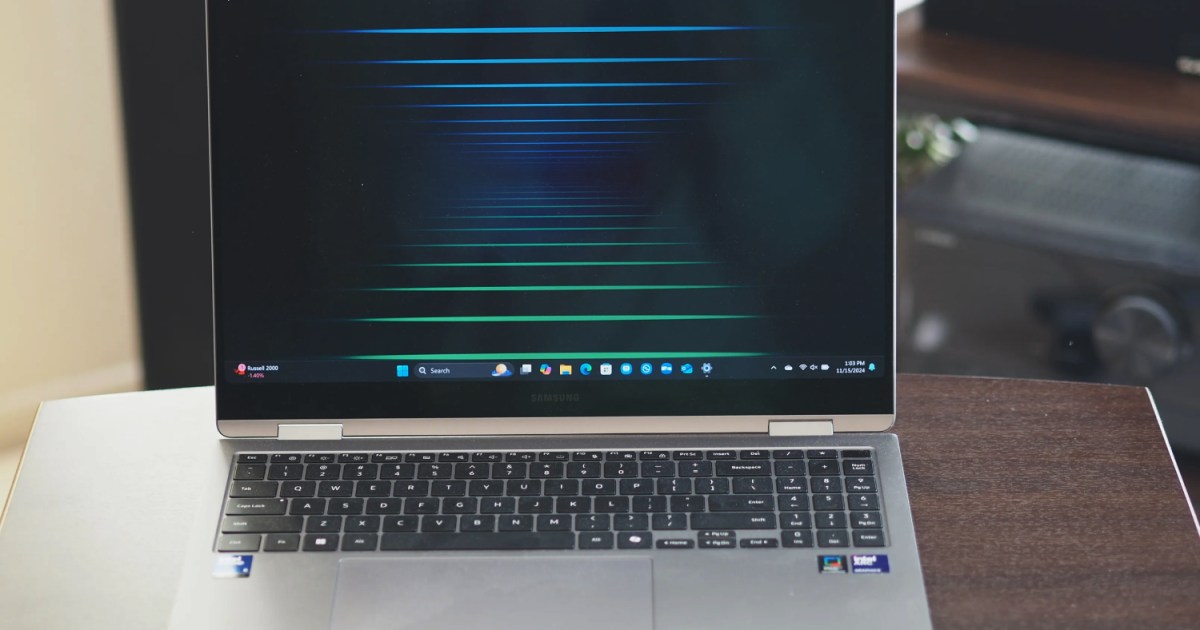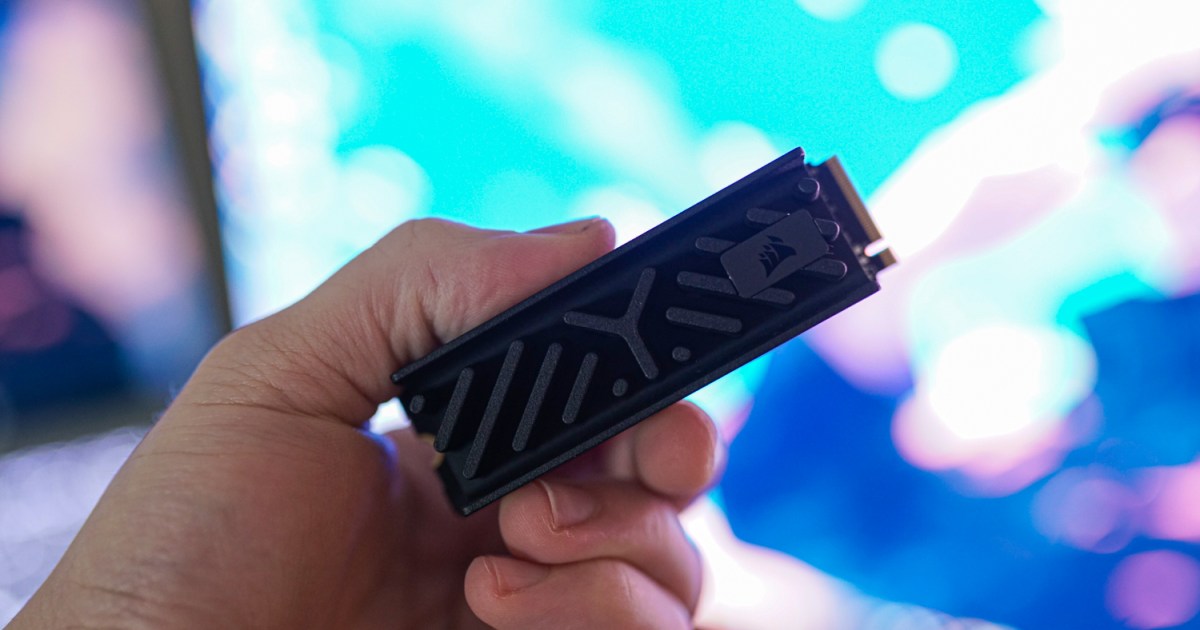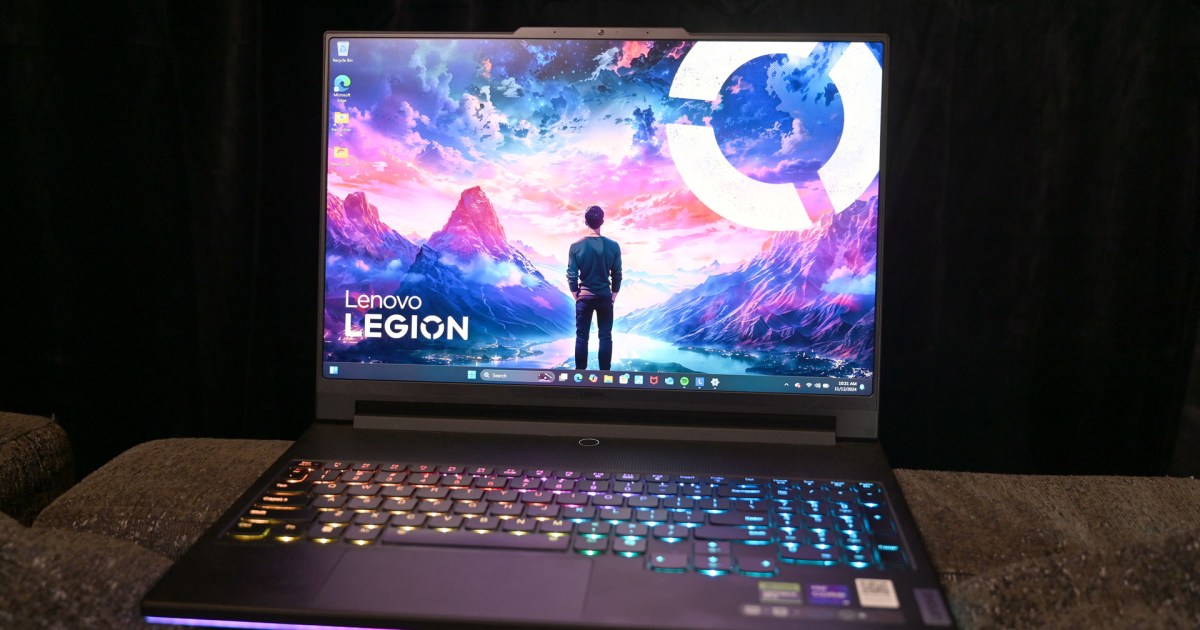AMD’s Ryzen 7 9800X3D claims the title of fastest gaming CPU, and our testing confirms this. It’s a strong contender for one of the best processors overall, boasting significant productivity improvements over previous generations. This review dives deep into the 9800X3D’s performance, exploring its gaming prowess and productivity capabilities.
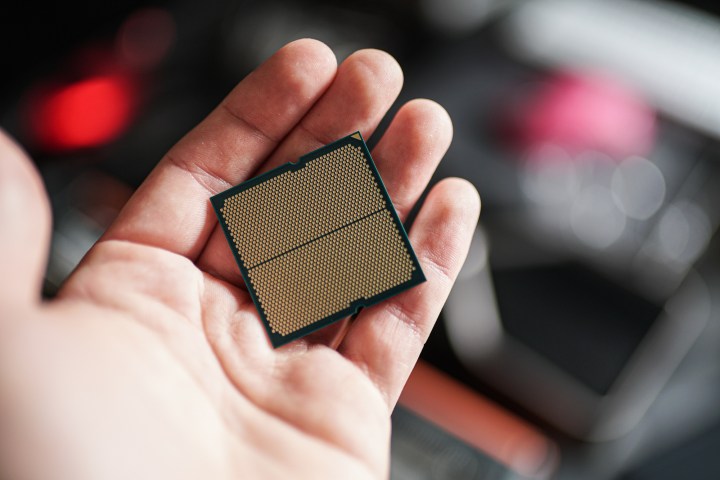 The back of the Ryzen 7 9800X3D.Image: The AMD Ryzen 7 9800X3D installed in a motherboard.
The back of the Ryzen 7 9800X3D.Image: The AMD Ryzen 7 9800X3D installed in a motherboard.
While the 9800X3D’s dominance is clear, the margins of victory over its predecessor aren’t as wide as some might expect. This review analyzes where the 9800X3D shines and where the upgrades are less impactful.
Ryzen 7 9800X3D Specifications and Features
The Ryzen 7 9800X3D shares many similarities with the Ryzen 7 7800X3D. Both feature eight cores, 16 threads, a 120W TDP, and 104MB of total cache thanks to AMD’s 3D V-Cache technology. However, the 9800X3D boasts a slightly higher clock speed, hinting at key architectural changes.
A significant advancement is the unlocked overclocking. While previous 3D V-Cache CPUs supported Precision Boost Overdrive (PBO), the 9800X3D allows full manual overclocking, offering control over voltages and multipliers. This is a first for 3D V-Cache processors.
| Feature | Ryzen 7 9800X3D |
|---|---|
| Architecture | Zen 5 |
| Cores/Threads | 8/16 |
| L3/L2 Cache | 96MB / 8MB |
| Base Frequency | 4.7GHz |
| Max Turbo Frequency | 5.2GHz |
| Socket | AM5 |
| Max Temperature | 95°C |
| TDP | 120W |
| Launch Price | $479 |
AMD’s “next-gen” 3D V-Cache places the cache beneath the CPU cores, improving heat dissipation and allowing for higher clock speeds. This contrasts with previous generations where the cache sat on top of the die, potentially hindering cooling. The Zen 5 architecture, also featured in the Ryzen 9 9950X and 9900X, introduces a 512-bit data path for AVX-512 instructions, beneficial for AI workloads and specialized applications like PS3 emulation.
Test Setup and Methodology
Our benchmark testing aimed for platform consistency, varying only the motherboards and processors while maintaining identical BIOS settings. Recent Windows and driver updates were applied, including the latest BIOS versions for Ryzen 9000 CPUs. We utilized the Xbox Game Bar for optimized performance with 3D V-Cache. While the Gigabyte motherboard offered an X3D Turbo mode, we opted for a consistent testing environment and left it disabled, acknowledging Gigabyte’s claimed 3% to 5% performance uplift.
| Component | AMD AM5 | Intel LGA 1851 | Intel LGA 1700 |
|---|---|---|---|
| GPU | Nvidia RTX 4080 Founders Edition | Nvidia RTX 4080 Founders Edition | Nvidia RTX 4080 Founders Edition |
| RAM | 32GB Gigabyte Aorus DDR5-6000 | 32GB Gigabyte Aorus DDR5-6000 | 32GB Gigabyte Aorus DDR5-6000 |
| Motherboard | Gigabyte X870E Aorus Master | Asus Z890 ROG Maximus Hero | MSI Z790 Tomahawk Wi-Fi |
| CPU Cooler | MSI CoreLiquid i360 | MSI CoreLiquid i360 | MSI CoreLiquid i360 |
| Power Supply | Gigabyte Aorus P1200W | Gigabyte Aorus P1200W | Gigabyte Aorus P1200W |
| Storage | Boot: Samsung 990 Pro 1TB / Tests: MSI M450 1TB | Boot: Samsung 990 Pro 2TB / Tests: MSI M450 1TB | Boot: Samsung 990 Pro 2TB / Tests: MSI M450 1TB |
Productivity Performance
Historically, 3D V-Cache CPUs have traded productivity for gaming performance. The 9800X3D breaks this trend, showing notable improvements in productivity benchmarks.
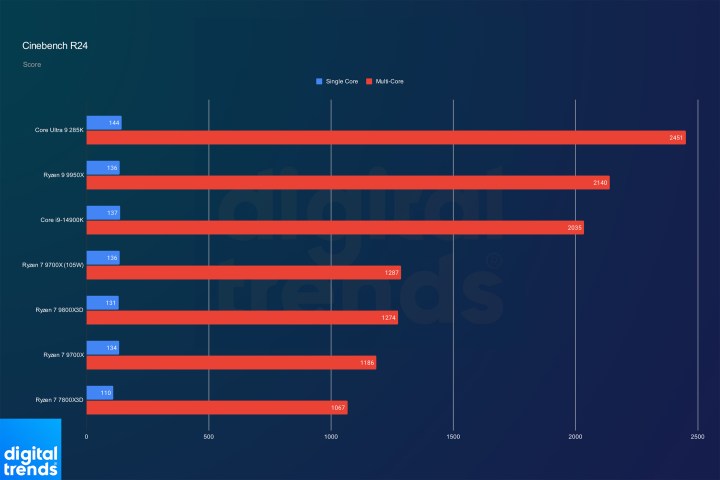 Performance of the Ryzen 7 9800X3D in Cinebench R24.Image: Cinebench R24 benchmark results comparing the Ryzen 7 9800X3D against other processors.
Performance of the Ryzen 7 9800X3D in Cinebench R24.Image: Cinebench R24 benchmark results comparing the Ryzen 7 9800X3D against other processors.
In Cinebench R24, the 9800X3D performs admirably for an eight-core CPU. Impressively, it matches or even slightly exceeds the Ryzen 7 9700X, demonstrating the effectiveness of the redesigned 3D V-Cache layout. This trend continues across various productivity applications, effectively mirroring the performance of a Ryzen 7 9700X operating at a higher power profile.
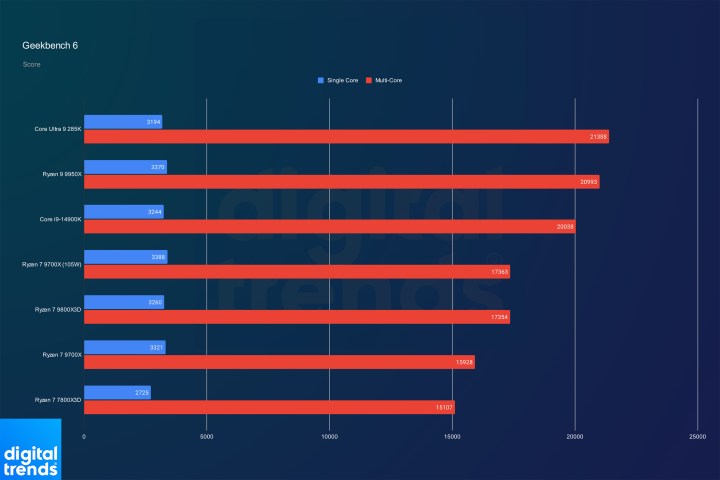 Performance of the Ryzen 7 9800X3D in Geekbench 6.Image: Geekbench 6 benchmark results comparing the Ryzen 7 9800X3D against other processors.
Performance of the Ryzen 7 9800X3D in Geekbench 6.Image: Geekbench 6 benchmark results comparing the Ryzen 7 9800X3D against other processors.
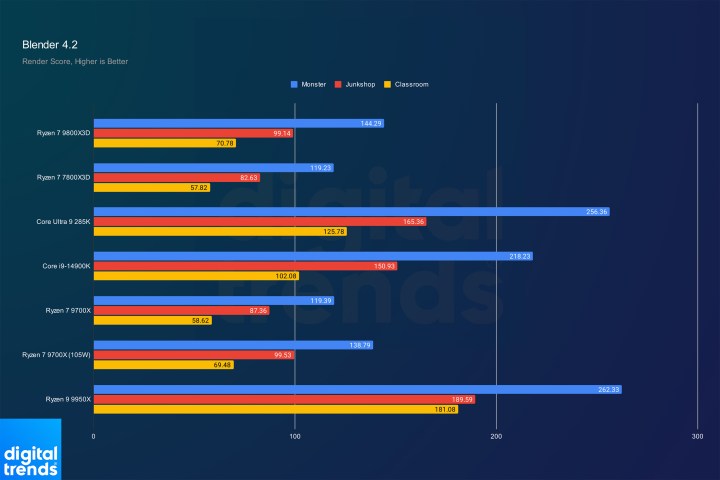 Performance of the Ryzen 7 9800X3D in Blender.Image: Blender benchmark results comparing the Ryzen 7 9800X3D against other processors.
Performance of the Ryzen 7 9800X3D in Blender.Image: Blender benchmark results comparing the Ryzen 7 9800X3D against other processors.
In Blender and Photoshop, the 9800X3D demonstrates impressive performance, even surpassing the 9700X in some instances. The generation-on-generation improvements are substantial, showcasing gains of up to 21% over the 7800X3D.
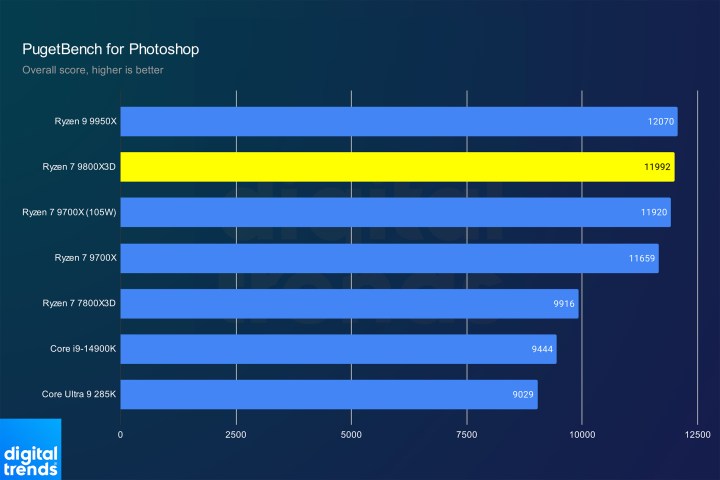 Performance of the Ryzen 7 9800X3D in Photoshop.Image: Photoshop benchmark results comparing the Ryzen 7 9800X3D against other processors.
Performance of the Ryzen 7 9800X3D in Photoshop.Image: Photoshop benchmark results comparing the Ryzen 7 9800X3D against other processors.
While the 9800X3D trails behind higher core-count CPUs in heavily threaded applications like Premiere Pro, it remains competitive with the 9700X and significantly outperforms the 7800X3D.
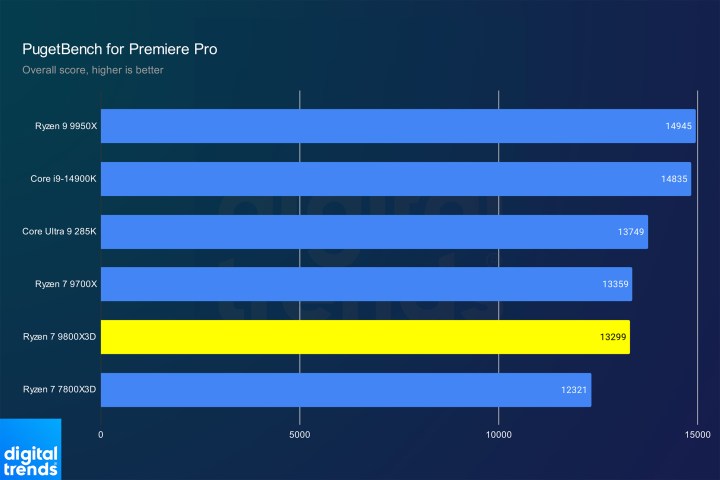 Performance of the Ryzen 7 9800X3D in Premiere Pro.Image: Premiere Pro benchmark results comparing the Ryzen 7 9800X3D against other processors.
Performance of the Ryzen 7 9800X3D in Premiere Pro.Image: Premiere Pro benchmark results comparing the Ryzen 7 9800X3D against other processors.
Finally, in Y-Cruncher, which leverages AVX-512 instructions, the 9800X3D delivers remarkable results, even outperforming Intel’s 24-core Core Ultra 9 285K.
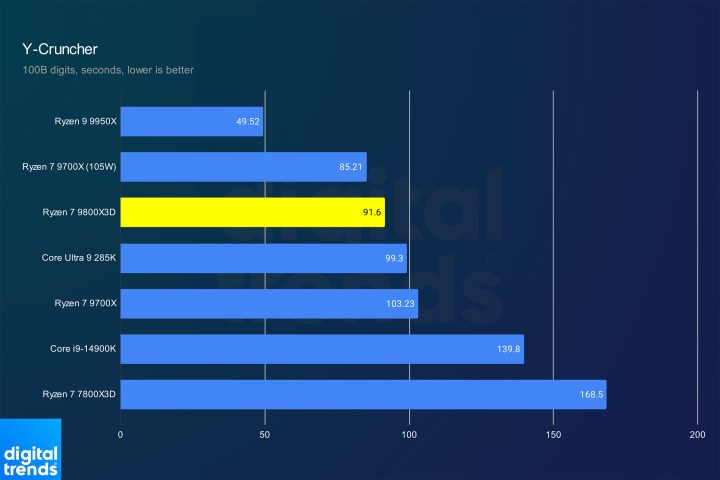 Performance of the Ryzen 7 9800X3D in Y-Cruncher.Image: Y-Cruncher benchmark results comparing the Ryzen 7 9800X3D against other processors.
Performance of the Ryzen 7 9800X3D in Y-Cruncher.Image: Y-Cruncher benchmark results comparing the Ryzen 7 9800X3D against other processors.
The 9800X3D’s productivity performance is a significant step forward for 3D V-Cache technology. While higher core-count CPUs might be preferable for pure productivity workloads, the 9800X3D’s performance suggests a bright future for high-core-count 3D V-Cache processors.
Gaming Performance
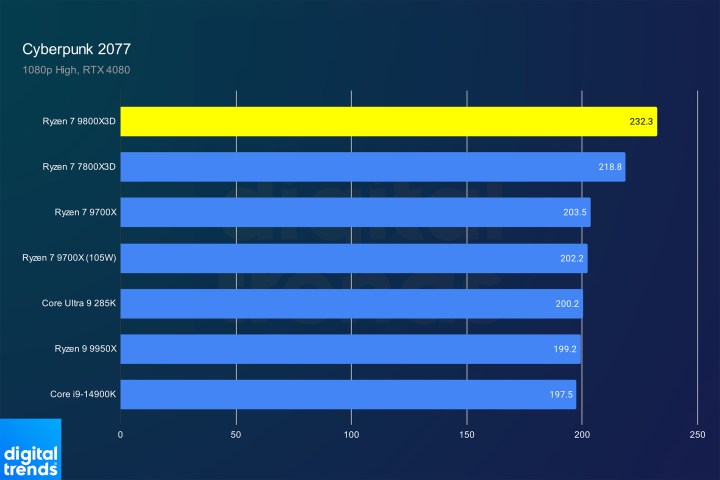 Performance of the Ryzen 7 9800X3D in Cyberpunk 2077.Image: Cyberpunk 2077 benchmark results comparing the Ryzen 7 9800X3D against other processors.
Performance of the Ryzen 7 9800X3D in Cyberpunk 2077.Image: Cyberpunk 2077 benchmark results comparing the Ryzen 7 9800X3D against other processors.
As expected, the Ryzen 7 9800X3D reigns supreme in gaming benchmarks. In Cyberpunk 2077, it showcases a 6% improvement over the 7800X3D and a 15% lead over the 9700X.
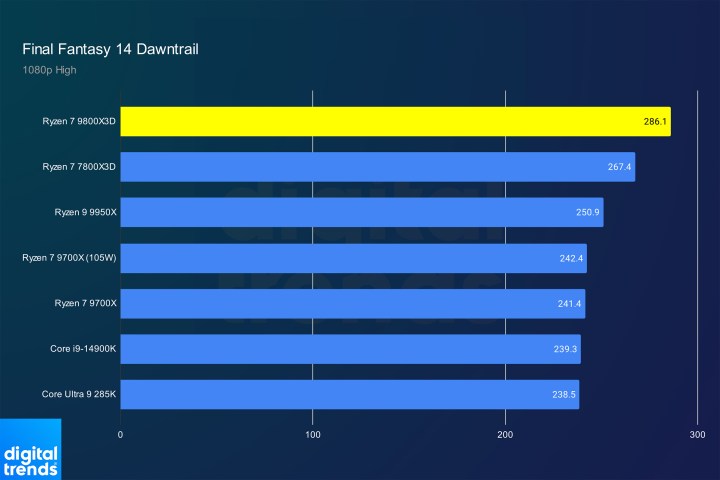 Performance of the Ryzen 7 9800X3D in Final Fantasy 14.Image: Final Fantasy XIV benchmark results comparing the Ryzen 7 9800X3D against other processors.
Performance of the Ryzen 7 9800X3D in Final Fantasy 14.Image: Final Fantasy XIV benchmark results comparing the Ryzen 7 9800X3D against other processors.
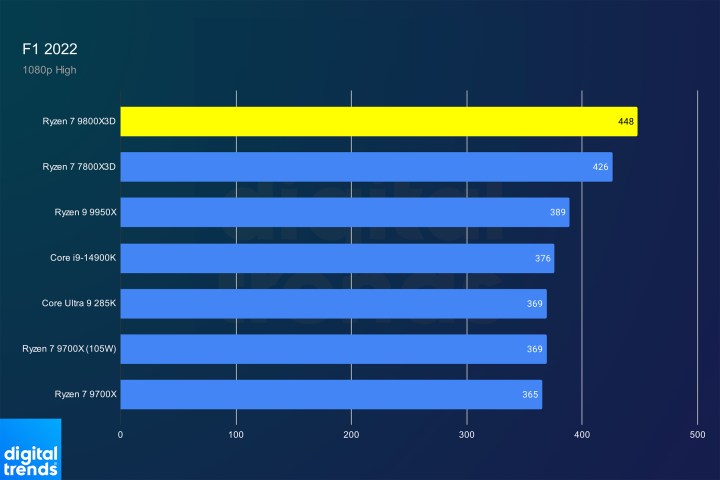 Performance of the Ryzen 7 9800X3D in F1 22.Image: F1 22 benchmark results comparing the Ryzen 7 9800X3D against other processors.
Performance of the Ryzen 7 9800X3D in F1 22.Image: F1 22 benchmark results comparing the Ryzen 7 9800X3D against other processors.
In titles like F1 22 and Final Fantasy XIV, the performance gains over the 7800X3D hover around 5-7%, slightly below AMD’s claimed 8% improvement.
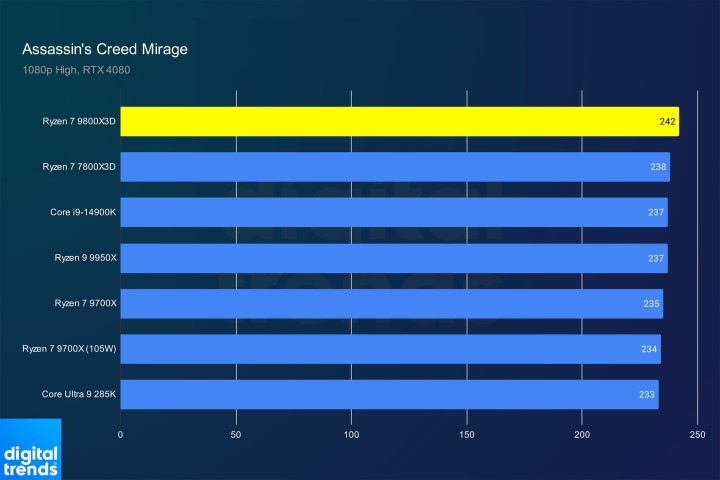 Performance of the Ryzen 7 9800X3D in AssassinImage: Assassin’s Creed Mirage benchmark results comparing the Ryzen 7 9800X3D against other processors.
Performance of the Ryzen 7 9800X3D in AssassinImage: Assassin’s Creed Mirage benchmark results comparing the Ryzen 7 9800X3D against other processors.
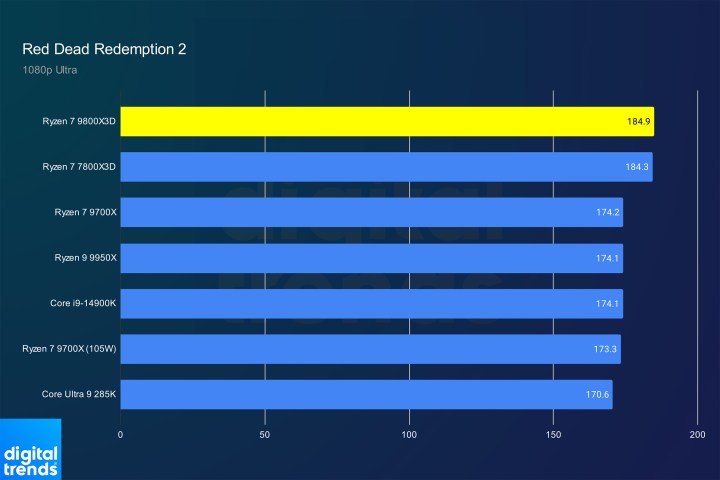 Performance of the Ryzen 7 9800X3D in Red Dead Redemption 2.Image: Red Dead Redemption 2 benchmark results comparing the Ryzen 7 9800X3D against other processors.
Performance of the Ryzen 7 9800X3D in Red Dead Redemption 2.Image: Red Dead Redemption 2 benchmark results comparing the Ryzen 7 9800X3D against other processors.
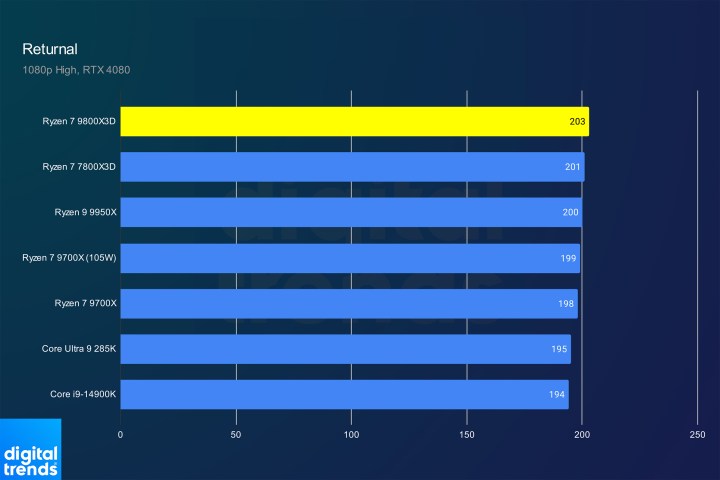 Performance of the Ryzen 7 9800X3D in Returnal.Image: Returnal benchmark results comparing the Ryzen 7 9800X3D against other processors.
Performance of the Ryzen 7 9800X3D in Returnal.Image: Returnal benchmark results comparing the Ryzen 7 9800X3D against other processors.
However, in games like Assassin’s Creed Mirage, Returnal, and Red Dead Redemption 2, the performance difference between the 9800X3D and 7800X3D is negligible. This highlights that some games simply don’t benefit significantly from the additional cache offered by 3D V-Cache.
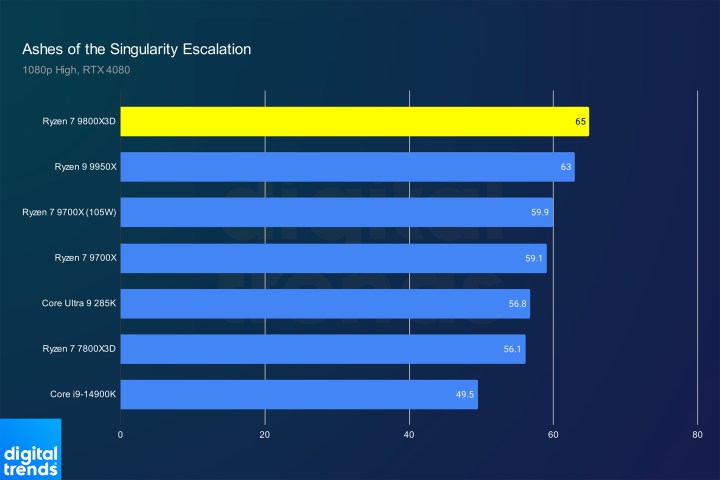 Performance of the Ryzen 7 9800X3D in Ashes of the Singualrity.Image: Ashes of the Singularity benchmark results comparing the Ryzen 7 9800X3D against other processors.
Performance of the Ryzen 7 9800X3D in Ashes of the Singualrity.Image: Ashes of the Singularity benchmark results comparing the Ryzen 7 9800X3D against other processors.
Certain titles, like Ashes of the Singularity, see a substantial performance uplift of around 15% with the 9800X3D. However, there are still some performance anomalies with Ryzen 9000 series CPUs.
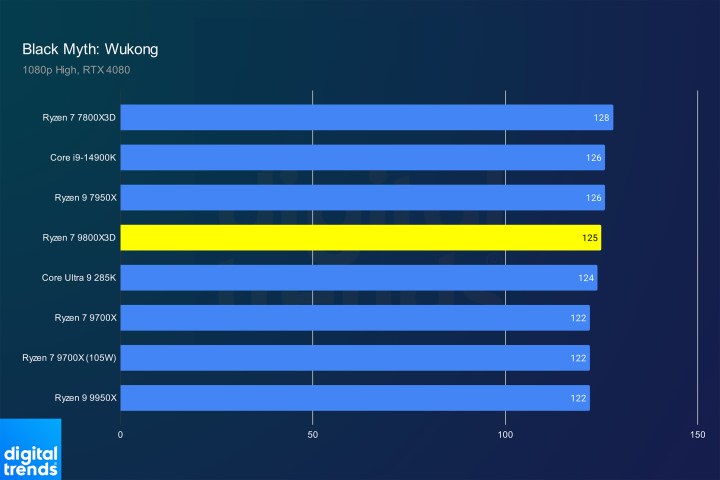 Performance for the Ryzen 7 9800X3D in Black Myth: Wukong.Image: Black Myth: Wukong benchmark results comparing the Ryzen 7 9800X3D against other processors.
Performance for the Ryzen 7 9800X3D in Black Myth: Wukong.Image: Black Myth: Wukong benchmark results comparing the Ryzen 7 9800X3D against other processors.
In Black Myth: Wukong, older Ryzen CPUs outperform their newer counterparts, suggesting further optimization is needed for Zen 5 in certain scenarios.
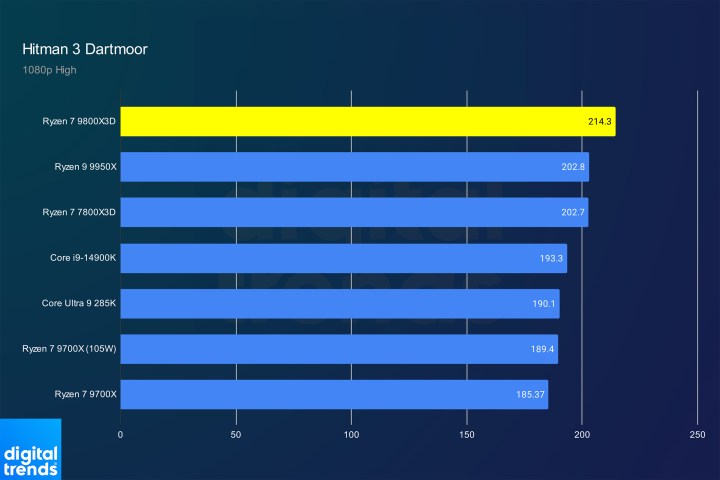 Performance of the Ryzen 7 9800X3D in Hitman 3.Image: Hitman 3 benchmark results comparing the Ryzen 7 9800X3D against other processors.
Performance of the Ryzen 7 9800X3D in Hitman 3.Image: Hitman 3 benchmark results comparing the Ryzen 7 9800X3D against other processors.
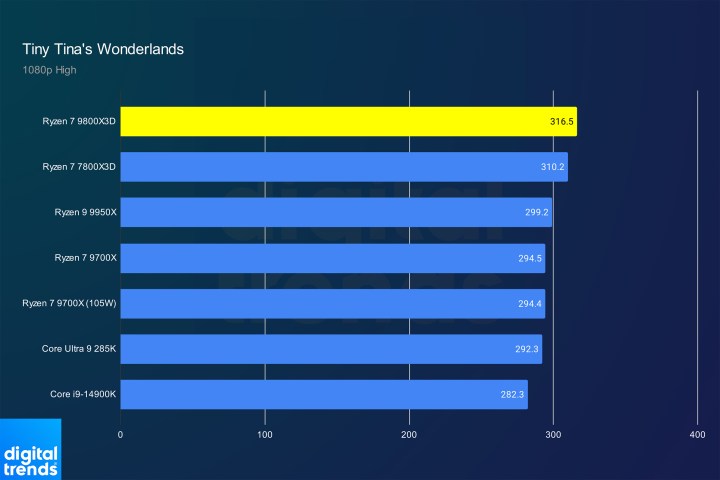 Performance of the Ryzen 7 9800X3D in Tiny TinaImage: Tiny Tina’s Wonderlands benchmark results comparing the Ryzen 7 9800X3D against other processors.
Performance of the Ryzen 7 9800X3D in Tiny TinaImage: Tiny Tina’s Wonderlands benchmark results comparing the Ryzen 7 9800X3D against other processors.
While the Ryzen 7 9800X3D is undeniably the fastest gaming CPU available, the gains over the 7800X3D are often marginal, particularly at higher resolutions and graphics settings.
Temperature and Power Consumption
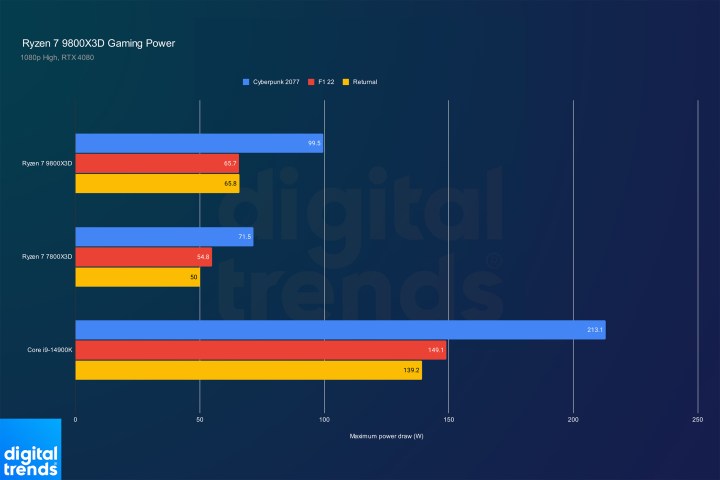 Power draw of the Ryzen 7 9800X3D in games.Image: Power consumption of the Ryzen 7 9800X3D during gaming.
Power draw of the Ryzen 7 9800X3D in games.Image: Power consumption of the Ryzen 7 9800X3D during gaming.
While the 7800X3D was remarkably efficient, the 9800X3D consumes more power. However, it remains significantly more efficient than competitors like the Core i9-14900K, staying below 100W in gaming scenarios. The higher power draw is a result of AMD’s redesigned 3D V-Cache layout, allowing the CPU to operate closer to its power limit rather than being thermally constrained.
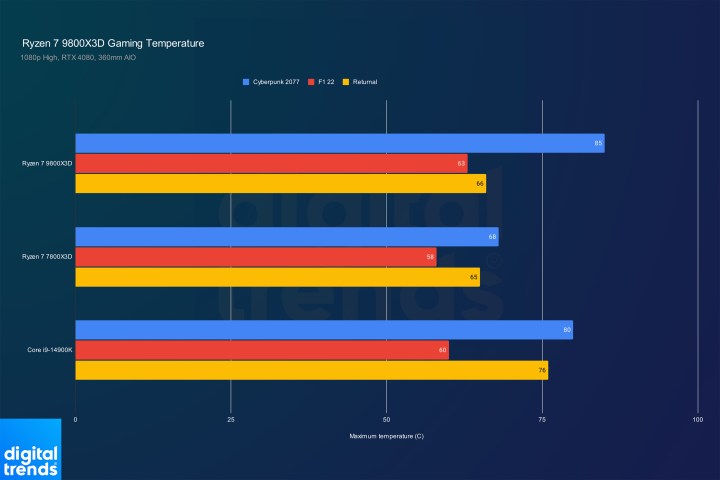 Temperatures for the Ryzen 7 9800X3D in games.Image: Temperatures of the Ryzen 7 9800X3D during gaming.
Temperatures for the Ryzen 7 9800X3D in games.Image: Temperatures of the Ryzen 7 9800X3D during gaming.
Despite the increased power consumption, the 9800X3D’s temperatures remain manageable, even with its higher clock speeds and unlocked overclocking capabilities.
Should You Buy the Ryzen 7 9800X3D?
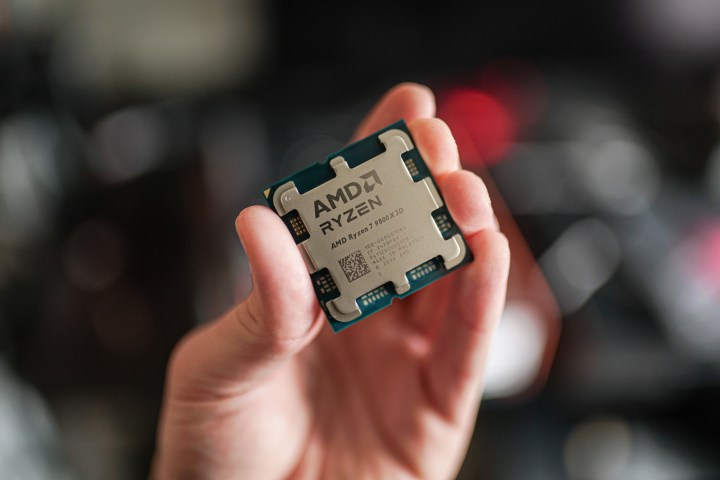 The Ryzen 7 9800X3D held between fingertips.Image: Close-up of the Ryzen 7 9800X3D processor.
The Ryzen 7 9800X3D held between fingertips.Image: Close-up of the Ryzen 7 9800X3D processor.
The Ryzen 7 9800X3D is a compelling choice for those seeking the absolute best gaming performance. The improved productivity performance is a welcome addition, making it a well-rounded processor.
However, the upgrade from a Ryzen 7 7800X3D might not be justified given the marginal performance gains in many games and the 9800X3D’s higher price. The value proposition depends heavily on the pricing of the 7800X3D.
For users upgrading from older platforms, particularly Intel systems or AM4 motherboards, the Ryzen 7 9800X3D is a highly recommended upgrade. For those with more recent hardware, a careful consideration of pricing and performance differences is advised.



